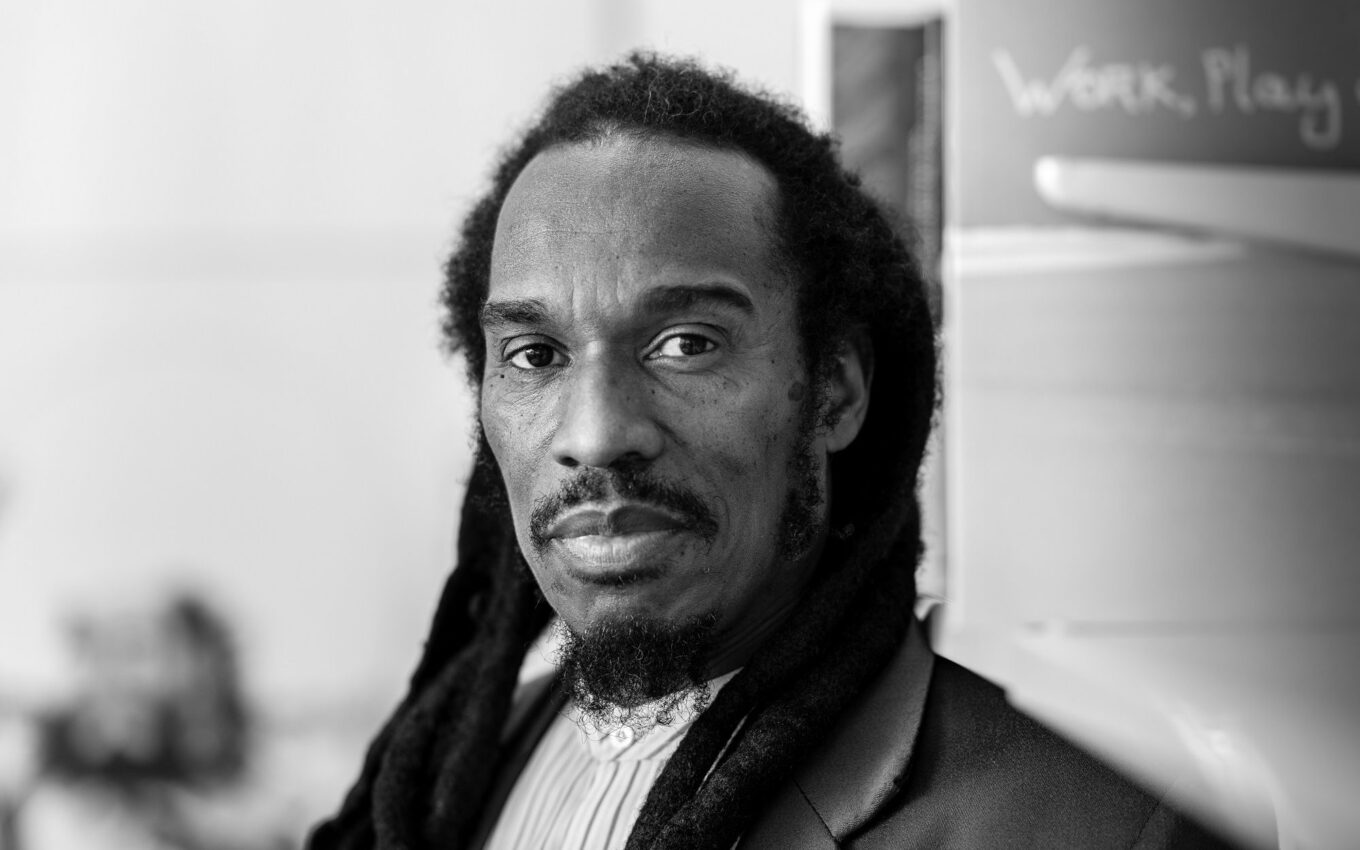ELEANOR BRINSDEN reflects on the work of poet Benjamin Zephaniah, who passed away in December 2023.
Sitting around a table, Benjamin Zephaniah smoked a cigarette while his mother spoke about his childhood. ‘Well, I always said I wanted Benjamin to be a doctor,’ said Valerie Springer, grimacing, then smiling at the interviewer. Pen Rhythm Poet, a documentary aired on Channel 4 in 1983, was Zephaniah’s first ever television appearance; filmed when he was 26, it profiled his work and steadily growing reputation as a performer who tackled issues surrounding discrimination and racial injustice, his experience as a black man living in a divided Britain largely informing the subject of his verse. At this point, while his growing acclaim was evidently becoming a source of pride for his mother, both sat unsuspecting of the tremendous success Zephaniah would go on to achieve.
Yes I could be a beggar
Maybe not a tax collector
I could be a streetwise snob,
But I’ll jus keep reciting de poems dat I am writing
One day I’ll hav a proper job.
—From It’s Work, Benjamin Zephaniah
In the documentary, clips from his performances flit between scenes from his everyday, mirroring how the events of his life would naturally come to crystallise into his verse—from Winson Green prison standing behind him, to binding his own book at a local London publisher, to the faces of attentive audience members packed tightly in intimate performance venues.
Dis is me naked. Unclothed, undressed under
the light of all the Gods that you dare
imagine, waiting to be touched with as
many versions of the truth as you
can conjure up in your turned off
mind.
—From Naked, Benjamin Zephaniah
A young face stares into the camera while an unmistakable, music-like rhythm accompanies the same passion that has persisted in his poetry throughout his life. Sitting back and letting the rhythms wash over you, there is a sense of fluidity that transcends the poetic form; his control over rhythm and cadence, accompanied by the forthrightness of his word choice, renders his imagery with a piercing clarity, particularly with his use of the Jamaican Creole and other dialects.
Ina de distance of de night you
see dem moving round
investigating and crime-making within any town,
creeping persons wid no hearts
dem control who dem please
dem only like fe see you
when you de pon you bending knees.
—From Dis Policeman Keeps On Kicking Me To Death
This is just one of many instances wherein he unwaveringly confronts his audience with uncomfortable societal truths, Zephaniah recounting a time in his adolescence when he was brutalised by law enforcement and convicted of a crime he had no involvement in. This is why his poetry is so direct: rarely employing figurative language, describing scenes clearly for what they were, and stating his messages plainly without unnecessary ornamentation. Zephaniah’s spoken word pushes against the boundaries of poetry in the same way his political message challenges orthodox thinking, his emotive power lying predominantly in the rhythm and sound of his speech.
You have to talk to me and not
the skin that holds me in,
I took the wisdom that I got
to make sure I would win;
—From Faceless
Reflecting upon his lyricism, in his autobiography, The Life and Rhymes of Benjamin Zephaniah, he describes how his mother bestowed upon him his poetic faculty: ‘She would stretch out syllables to make sure certain words rhymed, which is something all dub poets do. That’s me mummy’. In the same way, his poetry almost seemed to seep into his speech, as though a poetic cadence lived inside of him—a beating metronome that cohabited his thoughts, awaiting expression.
Zephaniah’s vision was of a multicultural and multiracial Britain, one ruled by empathy rather than conditioned hate. In a segment for BBC Newsnight, Zephaniah spoke of how racism in Britain has developed over his lifetime: where once discrimination was of an overt, violent kind, it is now of a form more insidious and disguised, rooted in internalised bias and prejudice, pitting us against each other, and perpetrated by our institutions. However, despite it all, Zephaniah’s relentless empathy and patient humour had enabled the persistence of his hope for British society—above all, his writing and activism serve to implore us to take on this same empathy. Benjamin Zephaniah’s life’s work amounts to an incredible list of accomplishments ranging from his animal rights and political activism to his literary achievements—the impact he had cannot be understated, and the legacy of his activism will continue to be remembered for years beyond his passing.
Featured image courtesy of Adrian Pope.





